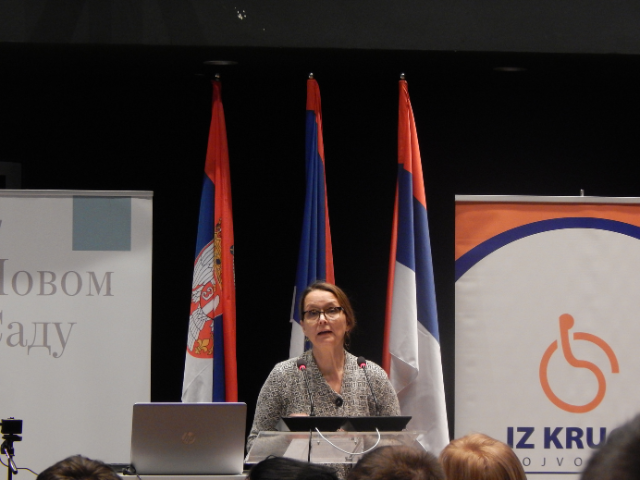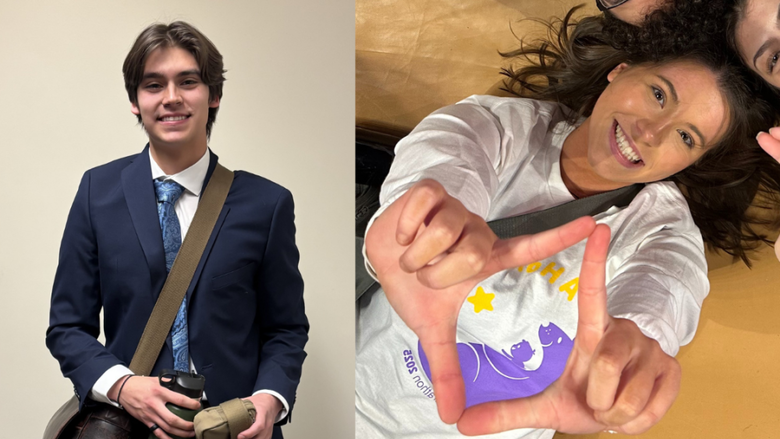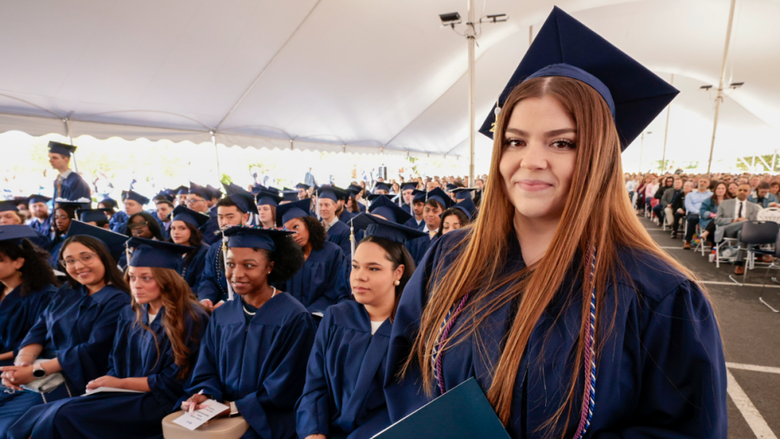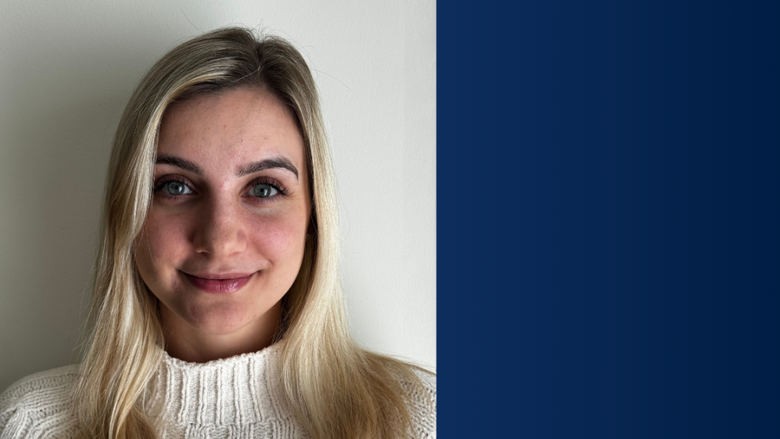
Andjela Kaur, assistant teaching professor, rehabilitation and human services (RHS) at PSU-LV, served as the co-keynote speaker at a conference focused on disability studies at University of Novi Sad, Serbia. Students in two of Kaur’s PSU-LV classes are also collaborating with students at the same university on projects addressing accessibility.
CENTER VALLEY, Pa. — A Penn State Lehigh Valley (PSU-LV) professor and her students are collaborating with a university in Serbia to bring a better understanding of disability studies to a broader audience.
In December, Andjela Kaur, assistant teaching professor, rehabilitation and human services (RHS) at PSU-LV, was co-keynote speaker at “An International Conference: Why Do We Need Disability Studies?” at her alma mater, University of Novi Sad in Serbia.
She and co-presenter and colleague, Olivera Jokic, director and professor of gender studies at John Jay College, City University of New York (CUNY), used the platform to respond to the guiding question — and recognize the theme of the whole conference — “Why does Serbia need disability studies?” This is not a field in Serbia, and one of the aims of the event was to raise awareness and recognize a need for this discipline.
“My talk was about recognizing people in Serbia who already work in what may be considered ‘disability studies,’” Kaur said. “There is robust activity in this area, but in Serbia currently there is nothing like what in the U.S. we call disability studies at the academic level. There, the work on ‘disability’ is mostly focused on a medical model in which ‘disability’ is solely defined as a medical condition rather than a whole person experience. Professor Jokic spoke about the history of development of gender studies, which could be used an example for disability studies.”
The conference was sponsored by the School of Social Work at the University of Novi Sad, and IZ KRUGA VOJVODINA, a non-governmental organization (NGO) working on disability rights issues primarily focused on disabled women. Kaur has been an active member of this organization and said she believes strongly in its mission.
“The event was important because the organization raises awareness about disability as a social and cultural phenomenon,” she said. “This perspective challenges the view that disability is a medical condition that must be overcome. That’s very important. Bringing people together to talk about disability in a positive way — this was a rare disability pride event for Serbia.”
Kaur’s address at the conference aligns with a project her students at PSU-LV are working on with their counterparts at University of Novi Sad.
“I have partnerships in two of my classes, and we just had a very successful semester,” she said. “The students worked in mixed groups consisting of both sides [PSU-LV and University of Novi Sad students] They conducted comparative accessibility assessments in their respective localities.”
For example, PSU-LV students surveyed the accessibility features in various locations near campus — the campus itself, the Promenade Shops, the Whitehall Mall. The students in Serbia conducted the same assessment for locations near them — the university’s campus, local mall, and movie theater. Then they compared the results and gave recommendations for improvement. Kaur and her colleague from the University of Novi Sad, Dragana Vukovic Vojnovic, developed the project.
“We are hoping the project will be more robust and end in actionable recommendations as we continue to develop it," said Kaur. "For instance, we’d like to share our students’ recommendations with the law students and politically engaged parties so that the results of this project can have long term impact on the society [at University of Novi Sad] for proposed legislation.”
In the meantime, the positive effects of collaboration are already showing, Kaur said. Students from both universities reported that they enjoyed meeting each other and working together. Some even continue to be in contact after the course has ended. Because of this collaboration, they have a deeper understanding of the important role accessibility plays in our everyday lives. Kaur’s recent visit to Serbia also yielded to positive outcomes in terms of furthering networking and developing future collaborative projects.
“A lot of good comes out of bringing diverse people together,” she said. “People learn from each other in unpredictable and organic ways. This informal learning is crucial for the development of socially responsible, caring and curious humans.”




